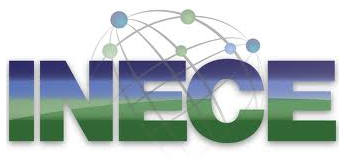The International Network for Environmental Compliance and Enforcement (INECE) has released a report on its project to promote cooperation among officials of Australia, Belgium, Canada, Hong Kong, Mexico, Netherlands, Singapore, UK and US regarding inspection of hazardous and electronic waste shipments.
The report recommends building capacity and promoting best practice in such cooperation.
 5 December 2012: The International Network for Environmental Compliance and Enforcement (INECE) released the synthesis report on its Second International Hazardous Waste Inspection Project, which focuses on cooperation in detecting illegal transboundary shipments of hazardous and electronic wastes (e-waste).
5 December 2012: The International Network for Environmental Compliance and Enforcement (INECE) released the synthesis report on its Second International Hazardous Waste Inspection Project, which focuses on cooperation in detecting illegal transboundary shipments of hazardous and electronic wastes (e-waste).
Issued on 5 December 2012 by the INECE Secretariat, the report includes several recommendations on capacity building as a key to combating illegal shipments, and on the need for developing guidance and good practice for implementing and monitoring national and international enforcement cooperation.
The project entailed cooperation between environmental and customs officials from Australia, Belgium, Canada, Hong Kong, Mexico, Netherlands, Singapore, the UK and the US. Inspections were made of 1,016 containers in 17 ports, in which 116 (11%) illegalities or infractions were found, and an additional 47 inspections were reported as under investigation. Many infractions involved lack of proper documentation or listing the address of an intermediate (trader/agent) instead of the final destination, or trans-shipment without proper prior informed consent.
Some techniques found for smuggling illegal hazardous and electronic wastes were: describing it as a similar legal material (example: describing cathode ray tube monitors as “computer equipment”), purposefully mis-declaring customs codes, listing unusable goods as usable, loading e-waste onto secondhand vehicles being shipped without listing it, or hiding e-waste behind false walls in a container.
Among the report’s recommendations are to: develop and deliver capacity building on inspection methods, intelligence-led enforcement, risk profiling, common tactics used by shippers of illegal wastes, targeting techniques and waste takeback; incorporate capacity building into existing institutional structures, such as national customs training academies; and develop tools to support cooperation, such as a set of best practices for cooperation, guidance, metrics to measure and evaluate degrees of cooperation, and models for effective institutional structures to promote cooperation.
INECE is a partnership of government and nongovernmental enforcement and compliance practitioners from more than 150 countries, supported by the UN Environment Programme (UNEP), the World Bank, the EC, the Organisation for Economic Co-operation and Development (OECD), and the environment agencies of Canada, the US and the Netherlands. [INECE Press Release] [Publication: Second International Hazardous Waste Inspection Project: Results and Recommendations]